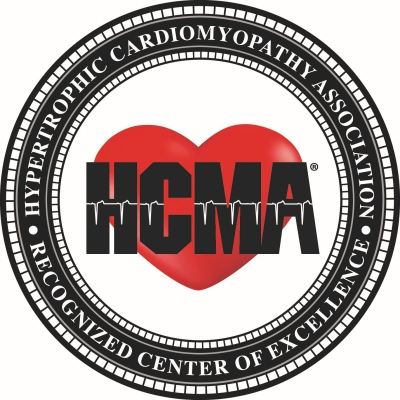
Finding Hope for Hypertrophic Cardiomyopathy
Living with a chronic disease like hypertrophic cardiomyopathy can be frustrating. But with the supportive care of leading cardiology experts, you’ll be empowered to continue living the life you love.

Living with a chronic disease like hypertrophic cardiomyopathy can be frustrating. But with the supportive care of leading cardiology experts, you’ll be empowered to continue living the life you love.
Hypertrophic cardiomyopathy (HCM), pronounced hyper-tro-fic cardio-my-opathy, is a common cardiac disorder that causes abnormal heart muscle thickening. As many as 1 in 200 people may have HCM. The symptoms of HCM resemble those of several other conditions, making it more difficult to diagnose. It sometimes mimics cardiac amyloidosis, metabolic disorders like Fabry disease and some of the features of an athlete’s heart. People with HCM may experience mild to severe symptoms, including shortness of breath, fatigue, chest, jaw and neck pain, heart racing or palpitations, lightheadedness and fainting.
HCM is an inheritable condition with many clinical profiles. Most commonly, the disease results from cardiac protein abnormalities that regulate the heart's contractility. These are usually the result of genetic variants that cause abnormal gene expression, which affects the heart’s normal function. Early recognition, diagnosis and treatment are critical to best managing symptoms, especially in people who have a high risk of serious cardiovascular complications.
As the only HCM Center of Excellence in Central Florida, our physicians have a wealth of experience treating the different clinical profiles of this condition, which may include congestive heart failure, cardiac arrhythmias and sudden cardiac death in a small subset of patients. For more information or to speak with a nurse navigator, please call 407-303-1648 or email CFD.CVHealth&WellnessFax@AdventHealth.com.

Hypertrophic Cardiomyopathy (HCM) is a common disorder of cardiac muscle. Patients with HCM may experience symptoms of shortness of breath, chest pressure, palpitations, lightheadedness and fainting.
HCM is a genetic condition. Early treatment and diagnosis is critical in order to best manage symptoms, especially in patients at high risk for serious cardiovascular complications. As the only HCM Center of Excellence in Central Florida, our physicians have experience treating the different clinical profiles of this condition, which may include congestive heart failure, cardiac arrhythmias and sudden cardiac death in a small subset of patients.
For more information or to speak with a nurse navigator, please call 407-303-1648.

Your whole health is our priority. The best way to support you in body, mind and spirit is to work together across our areas of expertise. That’s why we take a highly coordinated approach with our nurse navigator, who can help you navigate the health care system and support you at every step.
In our comprehensive program, you’ll have access to these teams:
Together, we can provide the effective treatment you need and the compassionate care you deserve.

AdventHealth Orlando has been identified as an HCM Center of Excellence for our commitment to providing expert treatment to patients with Hypertrophic Cardiomyopathy. We are the only center of excellence in Central Florida and are here to help patients feel strong, feel connected and feel whole through our quality of care.

A strong community encourages a strong heart. From connecting you with others through our cardiac support groups to helping you navigate our financial assistance tools, we’re here to give you the guidance you need to feel whole.
Learn More
As integral pieces of the largest heart, lung and vascular institute in Florida, every one of our Central Florida locations contributes to the strength of the AdventHealth Heart, Lung and Vascular Institute network. Explore your options with the guidance of our dedicated team. We’ll help you find the right fit, so you’re in the best setting to get the care you need.
View All Locations